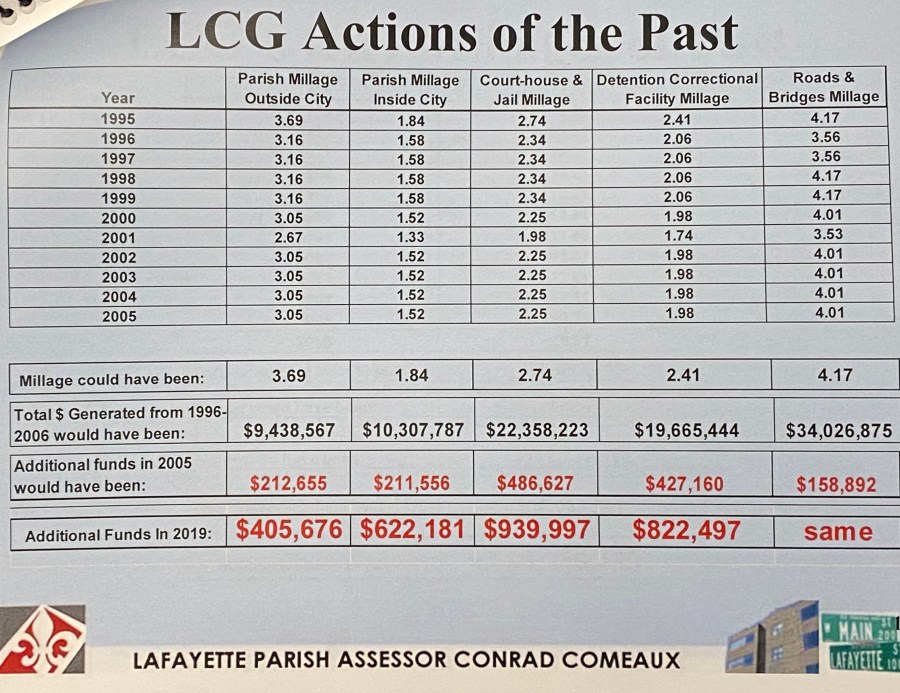LAFAYETTE, LA — Is Lafayette paying enough in property taxes? It’s one of many millage questions the City and Parish Councils discussed in Tuesday’s bi-monthly meeting.
There was a very informative discussion on how the parish and many of the Lafayette Consolidated Government’s services have become strapped for cash. Some of the damage can be reversed, but others will require more creative solutions.
“I just want to make sure we’re getting the best bang for our buck because we don’t have enough bucks,” admitted District 2 Parish Councilman Kevin Naquin.
Two items on the Lafayette Parish and joint Parish-City Agendas specifically discussed millages. Conversations were on the basics and an in-depth look at the parish millage for the Public Health Unit, Animal Shelter, Mosquito Abatement, and Cultural Economy.
“I’m talking about the parish revenue stream because that’s the hot topic”, starter Lafayette Parish Assessor Conrad Comeaux in his presentation on millage basics.
He explained certain millages can be adjusted every year, but if a taxing authority does not roll a millage forward over to its new maximum before every four-year reassessment, the maximum millage is lost.
“If you don’t raise it to that 2 mills, you are stuck from then on at 1.958”, Comeaux explained in one example.
He said past consolidated councils have let this happen over and again, “Your current problems started with the first consolidated council…It was the council’s actions that crippled you and put you where you are today.”
The presentation showed if the millages would have been maintained for the last 25 years, almost $100M could have been added to past budgets.

Comeaux showed LCG actions of the past kept $2,790,351 from the parish millages in 2019.
Lafayette Parish’s property tax millage rates are currently the absolute lowest in Louisiana’s metropolitan parishes at 82.9 mills (a 1/1000 of net taxable assessed property value),
According to at least one of lafayette’s councilmen, without an adjustment, recovery and adding any more services could be impossible.
“We’re doing the best we can with what we have, and that’s what the public has to understand”, said Naquin. “You’re getting a lot for what you’re paying, and I’m grateful that we’re continuing to put on band-aids, but at some point, this community is going to have to realize we’re dropping further and further behind the eight ball, and we’re not going to be able to cut our way out of it.”
Some millages are constitutional millages, meaning they will never be voted on again by the public. The only way to increase them would be if the economy tanks like in the ’80s.
Tonight’s discussion didn’t focus much on what the next step is to find funding, but with this information, plenty of discussions are expected later this year.
Comeaux did suggest in lieu of parish-wide taxes using district taxes, so a certain area can vote on a new project or service.
Lafayette Mayor-President Josh Guillory did promise a parish cultural economy millage will go up for a rededication vote this November.

